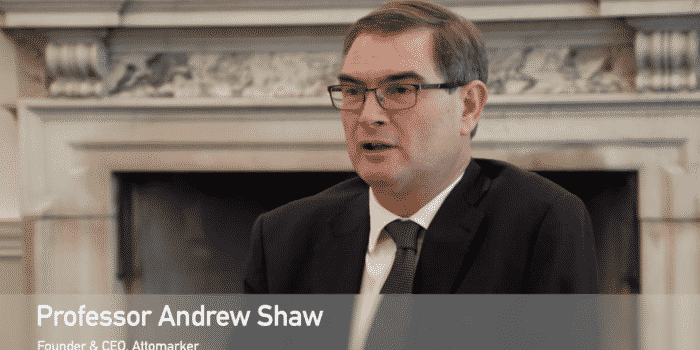Milltrust’s Future Health team has been working with PharmaJet, a commercial stage medical device company, which has developed user-friendly, inexpensive needle-free platforms for intradermal (ID), subcutaneous (SC) and intramuscular (IM) injection.
PharmaJet’s Tropis® platform (“Tropis”) uniquely enables mass-scale fractional dose polio vaccine injections; it has recently been selected by World Health Organization (“WHO”) for stockpiling, outbreak response, and as an important factor for national health ministries seeking preferential vaccine allocations. It has both CE Mark and WHO certifications.
PharmaJet Stratis® (“Stratis”) is an innovative needle-free injector with U.S. FDA 510(k) Clearance, CE Mark, and WHO certifications to deliver drugs and vaccines intramuscularly or subcutaneously. Earlier this year 500,000 children were inoculated in February in Karachi. The WHO will soon issue a report which cites a high level of patient, parent, field worker, clinical, and program management satisfaction.
The primary near term revenue opportunities are in developing markets through the WHO (Pakistan, Syria, Afghanistan, Cuba) and through Mundipharma (Indonesia, Nigeria, Egypt, etc). Device sales to support Polio vaccine delivery are forecast to exceed a $100mm+ opportunity in the region alone before expansion to other vaccines and regions. The novel pharmaceutical pipeline represents portfolio upside where Pharmajet will receive royalties and milestones for use of its devices.
Back in March 2018, MedCity News reported that Global health startup PharmaJet with needle-free injectable device was close to raising $5M
Golden, Colorado-based PharmaJet, which seeks to reduce needle-stick injury and waste, has developed a needle-free intradermal vaccine injector.
Needle-free drug injection company PharmaJet is close to completing a $5 million fundraising round of financing that would fund the production of 5 million syringes to deliver the polio vaccine.
Golden, Colorado-based PharmaJet has a three-year, $10 million contract with the World Health Organization (WHO) to produce a global stockpile of its Tropis intradermal injector, according to company chief financial officer Jeffrey Jordan. The company opened the latest funding round in June 2017, according to an SEC filing, and has raised $4.8 million.
PharmaJet has benefited from global health events, including a movement away from oral polio vaccine, which contains a live, but weakened virus and can actually transmit polio. Meanwhile, greater reliance on an injectable vaccine, which contains inactive poliovirus (IPV), led to a worldwide shortage.
Government and nonprofit efforts to reduce needlestick injuries have also benefited the company. The National Institutes of Health estimates the average cost of a needlestick injury at $405, including testing and treatment. Needle disposal and management add to the costs of using needles for vaccination.
WHO estimates that 16 billion injections are administered annually worldwide and that up to 40 percent of injections are given with improperly sterilized syringes and needles, which adds millions of dollars to global medical costs and has led to more than a million deaths. While low-income countries generate less hazardous waste per hospital bed per day than high-income countries, healthcare waste is often not separated into hazardous or non-hazardous wastes in low-income countries, making the real quantity of hazardous waste much higher.
Scavenging at waste disposal sites, common in many regions of the world, causes additional hazards to those who handle the waste. The value of eliminating the possibility of needle reuse and subsequent spread of disease is incalculable, said Dr. Orrin Ailloni-Charas, vice president of investment operations for AngelMD, an investment platform that PharmaJet has previously used to raise money, in an email. [Through its Catalyst Fund, AngelMD has also invested $100,000 in the company.]
There is another cost to consider – the amount of vaccine needed to deliver. WHO provided PharmaJet with initial funding to develop its intradermal technology after studies in Cuba, India, and Pakistan demonstrated the efficacy of using intradermal injection of smaller amounts of IPV (0.1 ml) in two doses over the standard, one-time needle-injected 0.5 ml dose. Intradermal delivery can reduce the amount of vaccine needed by as much as 80 percent in some cases, according to the Centers for Disease Control and Prevention. PharmaJet’s other injector, Stratis, is designed for intramuscular/subcutaneous delivery of 0.5 ml of a drug.
“We were thankful we were able to provide a solution by using our technology,” Jordan, PharmaJet’s CFO said. “In an intradermal injection, we can allow the same existing vaccine supply to reach two to three times as many children.”
A 2016 WHO-funded study in Pakistan showed that intradermal administration of IPV using PharmaJet’s Tropis injector by non-professionals “demonstrated that it is feasible, safe and efficient” for use in a vaccination campaign setting. Tropis was faster than needles used with and without intradermal needle adaptors and wasted less vaccine, the study added.
Tropis consists of a hand-held injector, needle-free syringe and a filling adaptor, providing a “push and click” delivery. The user pushes the injector against the skin and presses a button to retract the sleeve and administer the injection.
“It takes some of the human error out of the needle and syringe,” Jordan said. “In a campaign or outbreak-type setting, we have found that using our device they can go two to three times faster than using a needle.”
PharmaJet intends to produce the first 5 million devices under the WHO contract this year, and an additional 2 million per year in 2019 and 2020, he said. The rest of the current fundraising round will be used for operations.
The company has raised more than $50 million since 2005, when Kathleen Callender and her daughter, Heather Callender-Potters, founded the company. A dental hygienist, Kathleen Callender volunteered overseas and noticed how many needles were being discarded in garbage piles, where children were picking them up.
“Around this time, the WHO put out a call for a needle-free vaccination alternative,” Jordan said. “That’s where she found her mission. She started this company over her garage.”
Aside from WHO, other customers include British-based influenza vaccine company Seqirus, as well as with the Serum Institute of India, which uses Tropis for its MMR vaccine.
PharmaJet has the only commercially available needle-free technology with appropriate regulatory clearances for reaching all target tissues, according to AngelMD. Other key players in the needle-free injector sector include Antares Pharma, Inc., PenJet Corporation, Medical International Technology, Inc., INJEX Pharma AG, Crossject, National Medical Products Inc., Valeritas, Inc., and European Pharma Group, according to a 2017 report by Allied Market Research. WHO estimates the global market for vaccines will reach $100 billion by 2025.
On the research front, Pharmajet is working with the National Institutes of Health on injections of nucleic-acid based vaccines, which can be used to tackle the Zika virus. The French company Invectys is testing PharmaJet’s technology for oncology applications, and Vaccibody of Oslo, Norway, is is using it for HPV vaccine injections.
“We are very encouraged and really in a nice window where were really about to accelerate our growth,” Jordan said.




